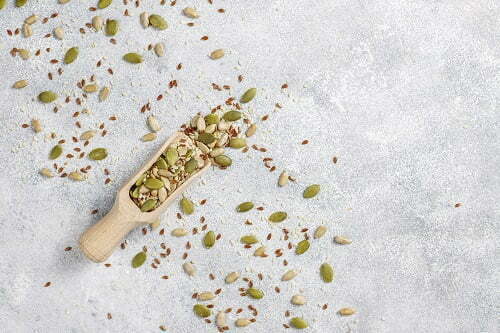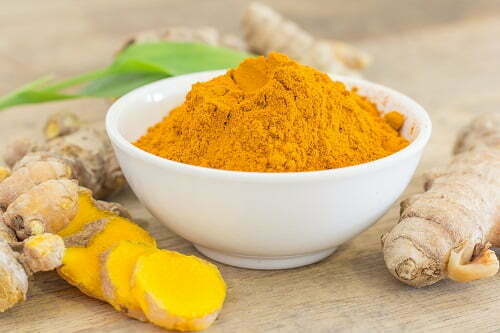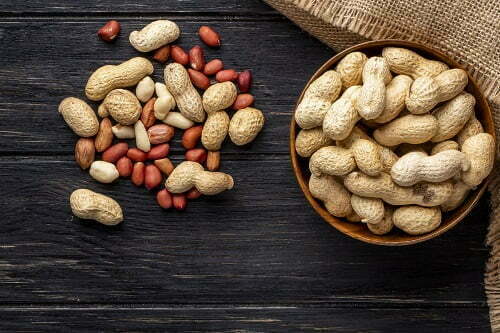Table of Contents
Do you know what’s the best part of adding memory boosting foods to your diet? It’s an easy change. Unlike the daily motors diet or the keto diet, memory boosting foods can easily become a part of your everyday life. For example, you can have fatty fish, berries, eggs, and nuts for breakfast and in the evenings to satisfy your food cravings. This will not only tame your hunger but also help you stay focused and boost your memory significantly!
Without further ado, let’s look at some of the best memory boosting foods available.
Foods that boost memory and enhance mental health
| Food item | Impact on mental health |
| Nuts | Eating nuts is good for your brain as they contain omega-3 fatty acids and antioxidants. They prevent brain fog, improve mental alertness, and increase your ability to memorize things. |
| Seeds | Seeds are also rich in antioxidants and omega-3 fatty acids. They are a rich source of vitamin E and can protect you from stress. |
| Fatty fish | Fatty fish is rich in omega-3 fatty acids and, as these acids help build membranes around cells, fatty fish are known to improve the structure of your neurons. Fishes like salmon, mackerel, tuna are good for your memory. |
| Broccoli | Broccoli is low in calories and rich in glucosinolates. It reduces your risk of neurodegenerative diseases. It’s rich in vitamin C and flavonoids. |
| Kale | Kale is also is rich in glucosinolates and vitamins, and is considered to be a superfood. |
| Turmeric | Boosts memory power, relaxes the mind, soothes depression-related symptoms, and prevents decline in mental health. |
| Dark chocolate (70% cocoa or more) | This contains cocoa, which contains flavonoids and a type of antioxidant. Since your brain is susceptible to oxidative stress, dark chocolate reduces age-related cognitive diseases. |
| Whole grains | Whole grains like brown rice, oatmeal, whole grain bread, and whole-grain pasta are rich in vitamin E. |
| Peanuts | Peanuts contain fats and protein to keep your energy levels up. They also have vitamins and minerals to keep your brain healthy. |
| Eggs | Eggs are rich in vitamin B-6, vitamin B-12, and folic acid. They also prevent brain shrinkage and decay in cognitive decline. |
Why are these memory boosting foods good?
Let’s learn a little bit more about these memory boosting foods and why they are good for us. Here is a brief look at how these best foods to boost memory and mental health work at a deeper level-
Nuts
Including nuts such as walnuts and almonds in your daily diet can do wonders for your mental health. Walnuts resemble the shape of the brain and are particularly helpful in maintaining brain health.
A rich source of antioxidants and omega-3 fatty acids, walnuts enhance the ability to concentrate and learn, soothe symptoms associated with anxiety. Regular consumption improves memory as well.
Almonds are a rich source of vitamin E, omega-3 fatty acids, folate, tocopherol, and polyphenols. These also improve mental alertness, prevent a decline in cognitive health, sharpen memory and avert brain fog. It is best to have soaked almonds to reap all of its benefits.
Seeds

Seeds have healthy fat fiber and minerals for a plant-based diet. They are loaded with iron, calcium, magnesium, and also phosphorus, which are good for your body. Moreover, they are critical for bone health and help your body filter out unwanted material.
These seeds will also so improve your energy levels as they give you more protein. Include them in your diet today-
- Sunflower seeds
- Pumpkin seeds
- Hemp seeds
- Flax seeds
- Chia seeds
- Sesame seeds
As mentioned earlier, they also have anti-inflammatory properties and prevent heart diseases and cancer.
Fatty fish
Loaded with omega-3 fatty acids, fatty fish is one of the best foods that improve memory and concentration. Omega-3 fatty acids are known as the building blocks of the brain. Additionally, they build brain and nerve cells that are necessary to sharpen memory. Research reveals that those who eat fatty fish can learn better, make wiser decisions, and prevent cognitive decline.
Fatty fish include salmon, sardines, trout, tuna, herring, and albacore. Kids must particularly be given fatty fish for proper brain development and better performance.
Broccoli
Broccoli is a rich source of nutrients. The presence of vitamin K in this green vegetable particularly improves overall cognitive health. That’s because this vitamin forms sphingolipid, a chemical which is needed for the proper functioning of our brain cells. This memory boosting food also contains anti-inflammatory and antioxidant properties that guard the brain against damage.
Kale
Kale are not only rich in vitamin A, K, B-6 but also magnesium, calcium, and potassium. There are different types of kale and they all have their own benefits.
Kale has little fat and more nutrition. It is in fact much higher in vitamin C than other vegetables. It helps lower your cholesterol level because it contains bile acid sequestrants. This means it can reduce the risk of heart diseases over time.
Pro tip: If you dislike the taste of Kale, turn them into chips! Wash your kale thoroughly and dry them. Drizzle a bit of oil, salt, and pepper on the mixture and bake it in your oven until it’s crisp. Your Kale chips are ready! This reduces the bitterness kale has and allows you to enjoy it as a snack.
Turmeric

If you are trying to figure out how to increase memory power with minimal effort, then turmeric is just the solution for you. Among the host of other benefits that it offers, turmeric also boosts brain cells.
Studies reveal that including this antioxidant in your daily diet helps sharpen your memory and soothe symptoms associated with depression. And owing to the presence of curcumin, it also helps our bodies with so many things as it enters the brain directly and improves its condition.
Dark chocolate (70% cocoa or more)
Confused how dark chocolate made it to this list? Well, dark chocolate contains antioxidants that are important for your brain health.
It also contains cacao flavonoids, which are good for your brain because they encourage neuron and blood vessel growth. They encourage neurons and blood vessels to grow in certain parts of the brain that improve memory and learning.
It’s important to remember that the darker the chocolate, the better it is. That’s because it contains higher amounts of fiber, antioxidants, potassium, calcium, etc. But keep in mind that it also contains calories and fat and that it’s best not to overdo it! 😛
Side note: Always read the ingredients in the product to know what you are putting in your body.
Whole grains
As we know, whole grains are high in fiber. This allows you to feel full with a lesser amount of food intake. It will also help you maintain your body weight.
Whole grains can be ground into flour or present in their actual form. Compared to other grains, whole grains have more fiber and important nutrients like vitamin B, iron-folic, potassium, magnesium, etc.
Peanuts

Peanuts are a very healthy snack and a great source of plant-based protein. They are high in vitamins, minerals, and plant compounds. These compounds can help you balance your weight and reduce the risk of heart diseases and gallstones.
Again, Peanuts are rich in vitamin E and magnesium folate, which helps protect cells from stress. They also improve enzyme function and energy production.
Eggs
If you are wondering how to improve memory power, then including eggs in your daily diet can be a simple solution. Eggs are an excellent source of folate, choline, vitamin B-6, and B-12. These nutrients help regulate mood, enhance memory, and boost your ability to focus.
1 large egg contains 6 grams of protein. It is also rich in vitamin D. It is also good for your eyesight, as it has lutein and zeaxanthin. This can reduce the risk of cataracts.
However, egg yolks also have cholesterol. One large egg can contain around 186 mg of it! Hence, it’s good to have just one egg a day.
It’s also better to cook your eggs fully to reduce the risk of salmonella.
Which of these memory boosting foods should I eat?
There is no right answer to this question. Everyone’s body is different and we all have a different calorie intake depending on our lifestyles. For example, if you are very active, your protein intake will be more as compared to someone who isn’t as active.
Having said there, here are a few things you should keep in mind as you start altering your diet-
- If you’re not happy with your diet, try to understand your calorie intake and make the necessary changes. Since food impacts your thinking and behavior it’s important to be cautious about what you put in your body.
- Your food habits have a direct impact on your mental and physical state.
- Not getting the right protein, fats, carbs, and also vitamins can affect your overall health.
- You may think that you have to avoid carbs and fats but it all depends on what your body needs. Too much of anything is not good.
If you want to learn more or have any doubts, you can contact us or drop a comment below!
Until next time!






